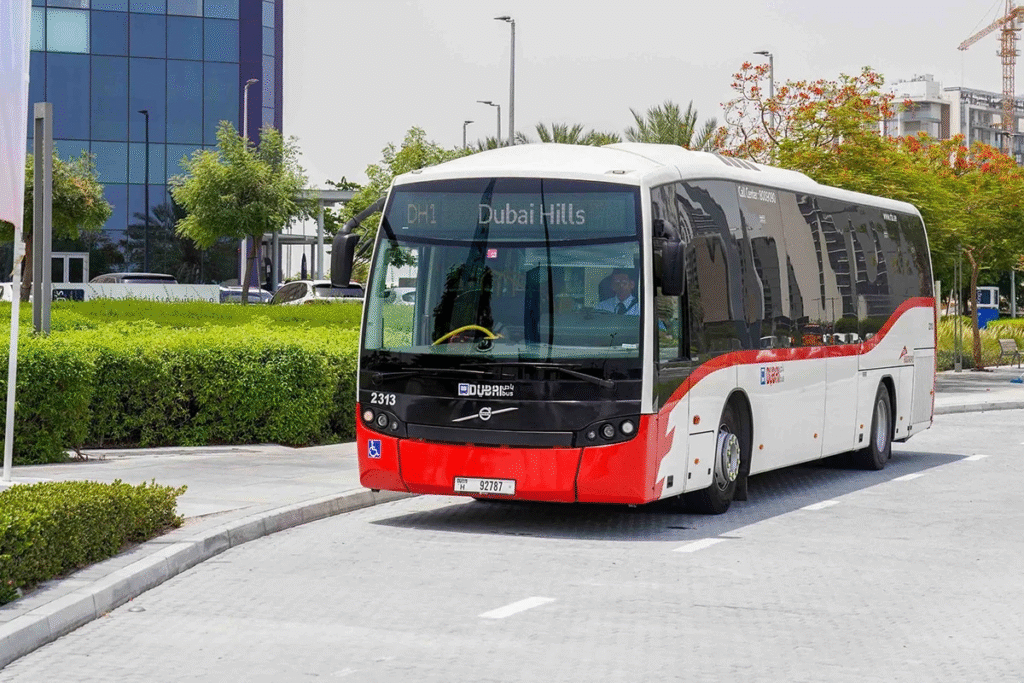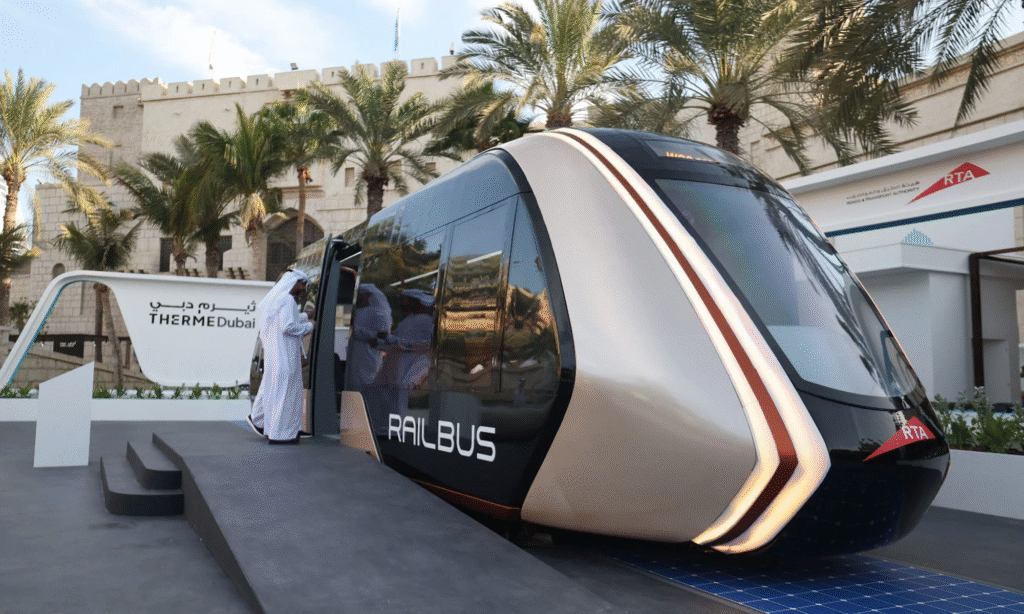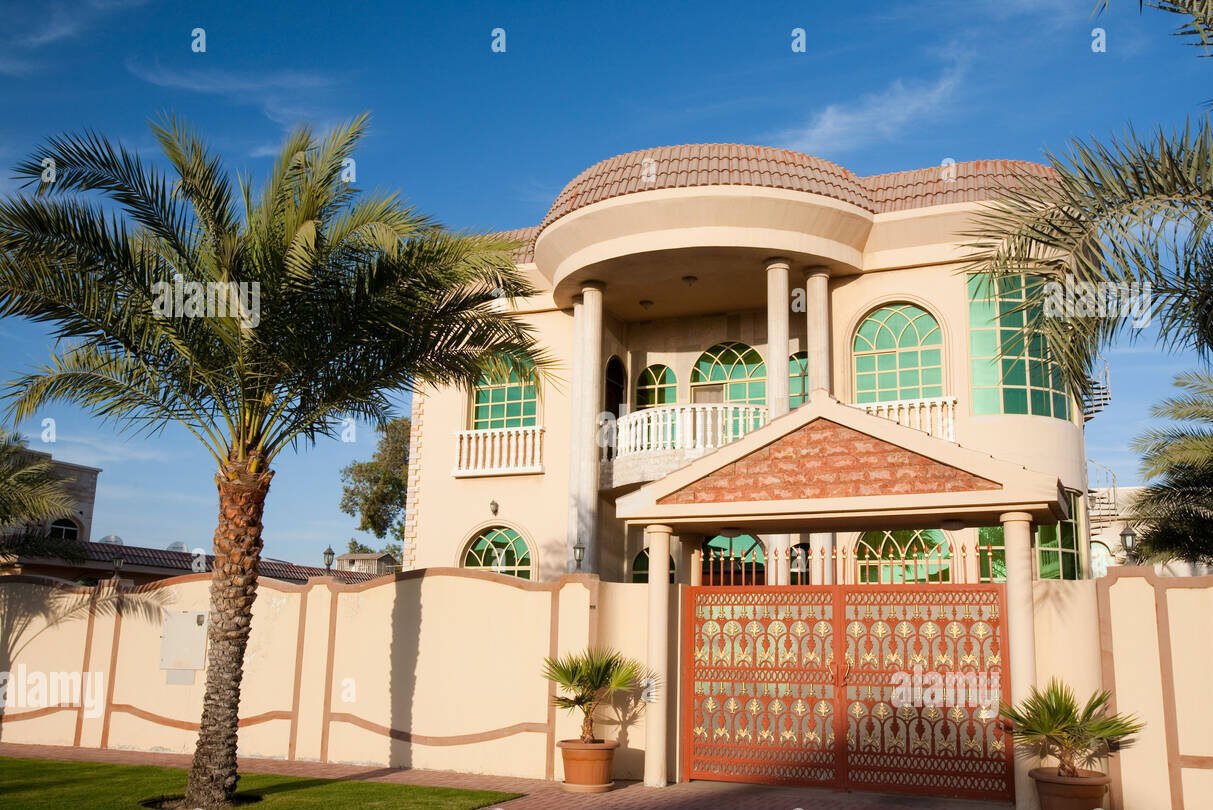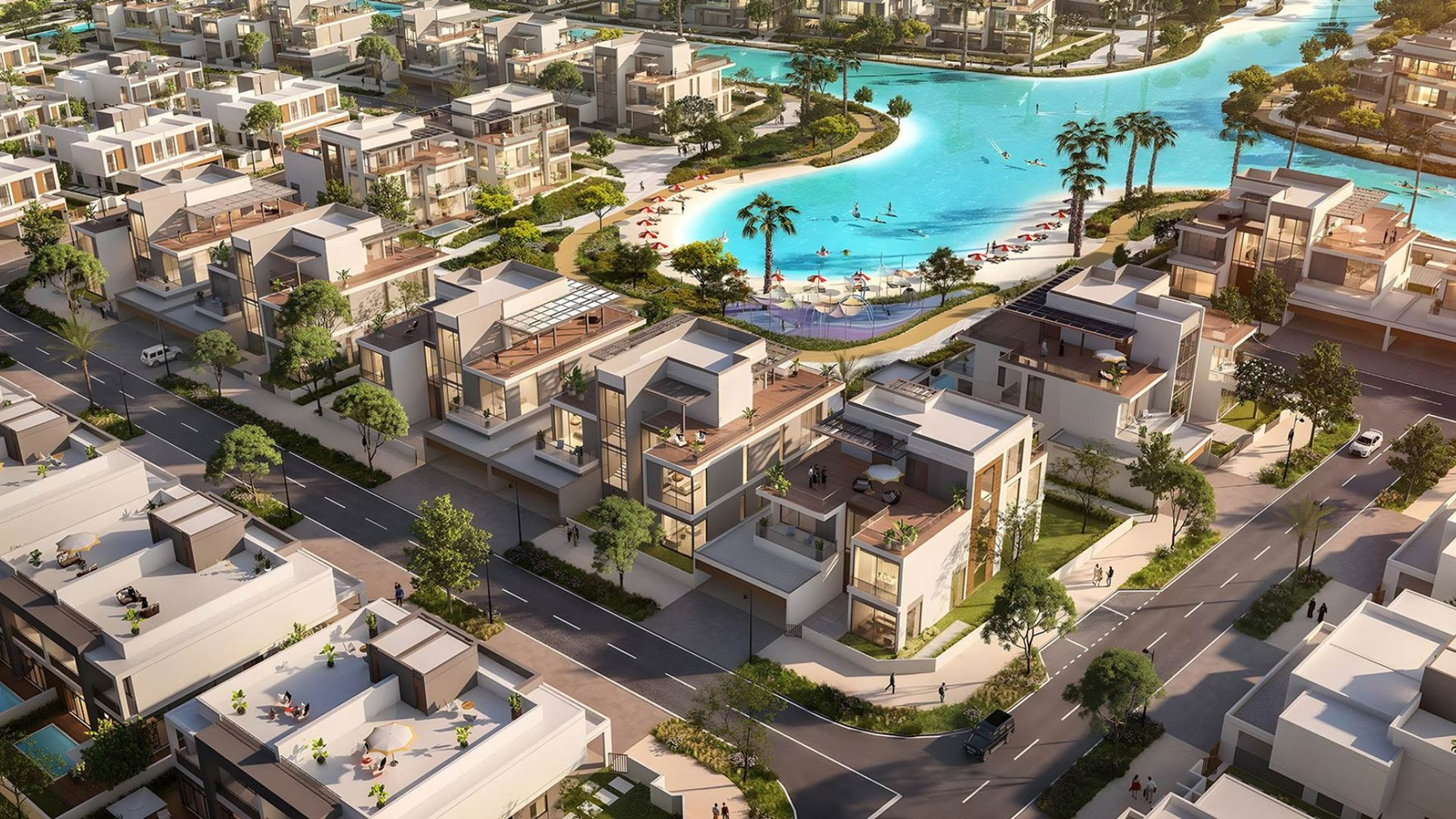Now Reading: UAE’s Bold New Plan for Greener Public Transport Systems 2025
-
01
UAE’s Bold New Plan for Greener Public Transport Systems 2025
UAE’s Bold New Plan for Greener Public Transport Systems 2025

Table of Contents
The United Arab Emirates (UAE), known for its towering skyscrapers and world-class infrastructure, is now making headlines for another reason — its aggressive push toward sustainable public transportation. As global concerns about climate change rise, the UAE is taking concrete steps to reduce its carbon footprint, enhance mobility, and become a regional leader in green transportation solutions.
From electric buses and hybrid taxis to autonomous metro trains and sustainable mobility hubs, the country is embracing a green revolution. Here’s a full update on what’s happening in the UAE’s public transport sector — and why it matters to residents, businesses, and the environment.
Why Sustainable Transportation Matters

Transportation accounts for about 24% of global carbon emissions, and the UAE, as part of its UAE Net Zero 2050 strategic initiative, is committed to cutting emissions and making public travel smarter and cleaner. By focusing on electric mobility, integrated transport networks, and renewable energy, the nation aims to:
- Improve air quality in urban areas
- Reduce dependence on fossil fuels
- Promote efficient and inclusive urban mobility
- Support long-term economic diversification
Dubai Takes the Lead: Smart and Sustainable Transit
Dubai has long been a pioneer in transportation innovation, and its latest sustainable public transit efforts are no different.
1. Electric Buses and Taxis
The Dubai Roads and Transport Authority (RTA) is expanding its fleet of electric buses and hybrid taxis. By the end of 2025, 50% of RTA taxis are expected to be hybrid or electric. These new vehicles reduce harmful emissions, cut fuel costs, and provide quieter rides for passengers.
Recently, the RTA began trial runs of electric buses on selected city routes. If successful, more of these will roll out across Dubai’s dense urban areas.
2. Driverless Metro and AI Technology
The Dubai Metro already boasts driverless trains powered by electricity. The Red and Green Lines, which span over 90 km, are fully automated and continue to expand.
To improve efficiency and reduce energy use, Dubai is testing AI-based traffic flow systems, predictive maintenance, and energy-saving lighting in stations.
Abu Dhabi’s Green Mobility Vision
Abu Dhabi is making big moves in sustainable public transportation through its Integrated Transport Centre (ITC) and sustainability-focused policies.
1. Smart Bus Shelters and Clean Energy
Abu Dhabi’s new-generation bus stops are equipped with solar panels, digital schedules, air conditioning, and real-time updates. The goal? Make waiting for the bus a pleasant, tech-savvy, and eco-friendly experience.
In 2023, the city launched its first electric bus fleet, operating on high-demand urban routes. These buses are powered using solar charging stations, ensuring clean energy from start to finish.
2. Multi-Modal Transport
The ITC is promoting a “Mobility-as-a-Service” (MaaS) platform, where commuters can plan trips combining buses, ride-sharing, e-scooters, and metro links — all through a single digital app.
Sharjah, Ajman, and Northern Emirates: Joining the Green Drive
While Dubai and Abu Dhabi are leading the way, other emirates are catching up fast.
1. Sharjah’s Eco-Friendly Buses
Sharjah has added CNG (compressed natural gas) buses to its intercity fleet and aims to convert all public buses to cleaner alternatives by 2027. The government is also studying the feasibility of a light rail system.
2. Ajman’s Digital Ticketing and Smart Stops
Ajman is investing in digital ticketing systems and solar-powered bus shelters, making everyday commutes smarter and more sustainable.
Sustainable Transport and Expo Legacy
The Expo 2020 Dubai had a massive influence on the UAE’s green transport ambitions. The event’s focus on “Mobility, Sustainability, and Opportunity” pushed authorities to invest in clean technologies that would remain useful long after the Expo closed.
Today, the Expo City Dubai continues to serve as a sustainability testing ground, using electric trams, shaded walking paths, and autonomous pods to move people across its eco-friendly zones.
The Rise of Micro-Mobility: Scooters and Bikes
Sustainable public transport isn’t just about buses and trains. E-scooters, bike-sharing systems, and pedestrian-friendly urban design are growing in popularity — especially in areas like Downtown Dubai, Abu Dhabi Corniche, and Sharjah’s University City.
Companies like Careem BIKE and Tier Mobility are operating electric bike and scooter fleets, which help reduce short-distance car usage. These options are particularly useful for the first-mile/last-mile problem — getting people from their homes to public transit stops and back.
Infrastructure Investment: Charging Stations and Innovation Hubs
For electric transport to thrive, infrastructure is key. That’s why the UAE government and private partners are working together to:
- Expand the electric vehicle charging network across all emirates
- Build solar-powered transit depots
- Encourage private sector investments in smart mobility
The Ministry of Energy and Infrastructure has pledged to install over 1,000 EV charging points by 2030, in both public and private locations.
Challenges to Overcome
While the UAE’s progress is impressive, some challenges remain:
- The high upfront cost of electric buses and charging systems
- The need to train staff and drivers for new technologies
- Behavioral change among residents used to private car travel
Still, the government’s strong commitment and growing public awareness are helping to address these issues gradually.
Looking Ahead: The Road to Net Zero

With COP28 held in Dubai in 2023, the UAE reaffirmed its role as a climate-conscious nation. Transportation plays a key role in that vision. Looking forward, we can expect:
- More autonomous and electric transit options
- Integrated transport networks across all emirates
- Wider adoption of green fuel alternatives like hydrogen
- Enhanced incentives for public transport use and EV ownership
Final Thoughts
The UAE is building more than just roads and railways — it’s building a sustainable future. Through innovation, investment, and public-private collaboration, the country is proving that eco-friendly transport and urban development can go hand in hand.
Whether you’re a resident, commuter, tourist, or business owner, these changes in the public transport system are bound to make your journey smoother, cleaner, and smarter.
Read More:- Deyaar’s Latest Announcement Shakes Up the UAE Property Market





















